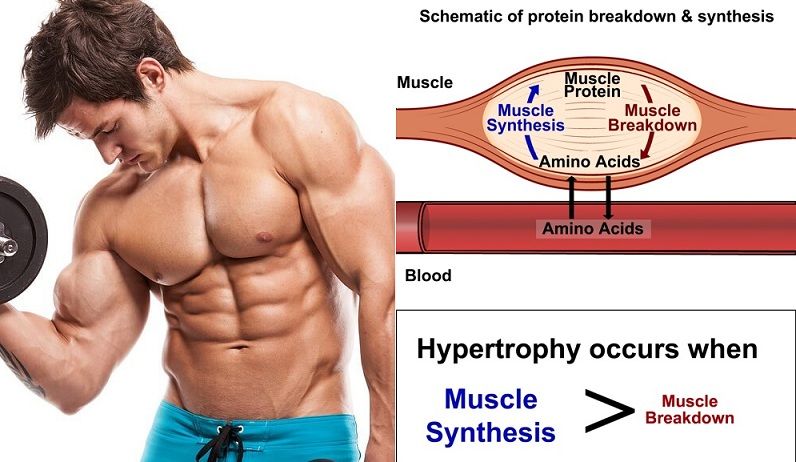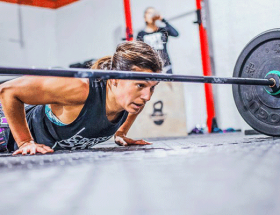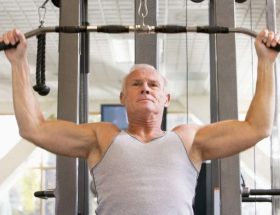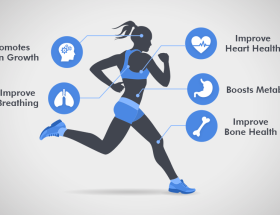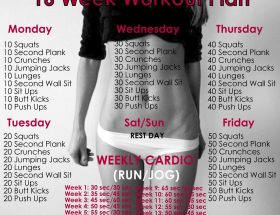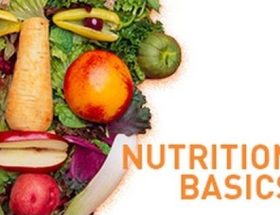In order to build and strengthen muscles, it is important to maintain a proper diet, which includes consuming an adequate amount of protein. Protein plays a crucial role in muscle building and repair, and is essential for athletes, bodybuilders, and anyone seeking to achieve a fit and toned physique.
What is Protein?
Protein is a macronutrient that is composed of amino acids, which are the building blocks of our body. It is necessary for the growth, repair, and maintenance of body tissues, including muscles. Amino acids are classified as essential and non-essential, with the former being obtained solely from dietary sources.
Protein and Muscle Growth
When we engage in physical exercise, our muscle fibers undergo microscopic damage. This damage stimulates the body’s natural repair process, which involves the synthesis of new proteins to rebuild and strengthen the muscles. Protein is vital for this process, as it provides the necessary amino acids for muscle protein synthesis.
In order to promote muscle growth and optimize muscle protein synthesis, it is recommended to consume protein-rich foods or supplements within the anabolic window, which is the period immediately following exercise. During this time, the muscles are most receptive to nutrients, including protein, and consuming it during this window enhances their recovery and growth.
Protein and Muscle Repair
In addition to muscle growth, protein also plays a crucial role in muscle repair. Intense exercise leads to muscle damage and inflammation, and protein aids in reducing the inflammation and repairing the damaged muscle tissues.
The consumption of protein following a workout helps to minimize muscle soreness and fatigue, and accelerates the recovery process. This allows individuals to train more frequently and with greater intensity, ultimately leading to faster gains in muscle strength and size.
Protein and Energy
Protein can also serve as an energy source during intense workouts or when carbohydrates are limited. When carbohydrates are not readily available, the body can convert amino acids from protein into glucose through a process called gluconeogenesis. This glucose is then used for energy, allowing the individual to continue their workout or physical activity.
How Much Protein is Needed?
The amount of protein needed for muscle building and repair varies depending on several factors, such as body weight, level of physical activity, and individual goals. Generally, it is recommended to consume between 0.8 to 1 gram of protein per pound of body weight for those engaged in regular strength training or intense physical activity.
However, some athletes and bodybuilders may require higher protein intake to support their muscle growth and recovery needs. It is important to consult with a healthcare professional or a registered dietitian to determine the optimal protein intake based on individual requirements and goals.
Sources of Protein
There are numerous food sources that are rich in protein and can be incorporated into a muscle-building diet. Some examples include:
Lean meats such as chicken, turkey, and beef.
Fish and seafood, particularly salmon, tuna, and shrimp.
Eggs and dairy products like milk, yogurt, and cheese.
Legumes and beans, including lentils, chickpeas, and black beans.
Nuts and seeds such as almonds, walnuts, chia seeds, and flaxseeds.
Protein supplements like whey protein, casein protein, and plant-based protein powders.
The Timing of Protein Intake
The timing of protein intake is also crucial for maximizing muscle growth and repair. As mentioned earlier, consuming protein within the anabolic window post-workout is beneficial. Furthermore, spreading protein intake evenly throughout the day ensures a consistent supply of amino acids for muscle protein synthesis.
Some individuals may also benefit from consuming a protein-rich meal or snack before bed. This can help prevent muscle breakdown during the overnight fasting period and support muscle repair and recovery during sleep.
Conclusion
Protein plays a vital role in muscle building and repair. It is essential for muscle protein synthesis, muscle recovery, and providing energy during intense workouts. Adequate protein intake, in combination with regular strength training and a balanced diet, can help individuals achieve their muscle-building goals and maintain a strong and healthy physique.
Remember to consult with a healthcare professional or registered dietitian to determine the appropriate protein intake based on individual needs and goals. So get your protein-rich foods and supplements ready, and start working towards building those strong and well-defined muscles!
